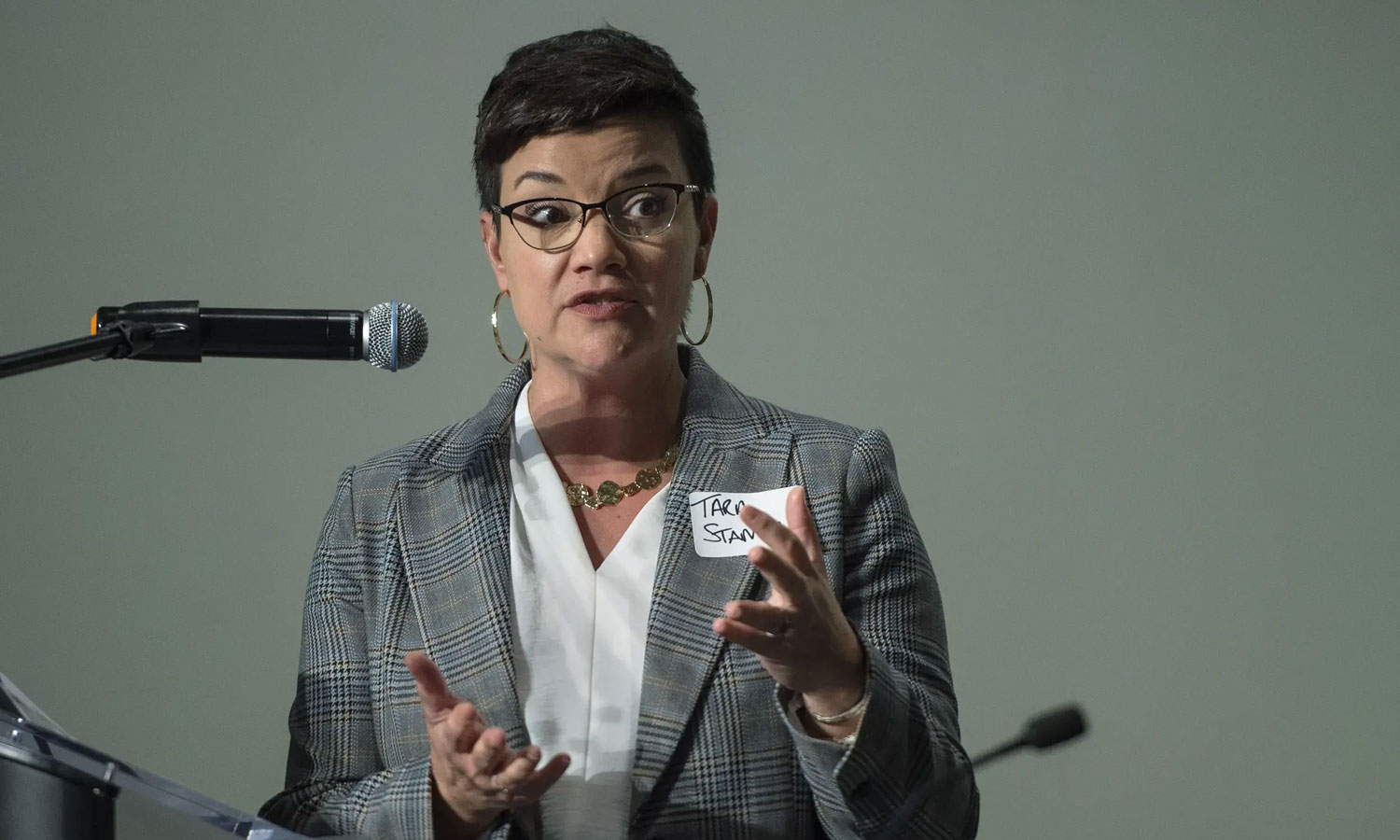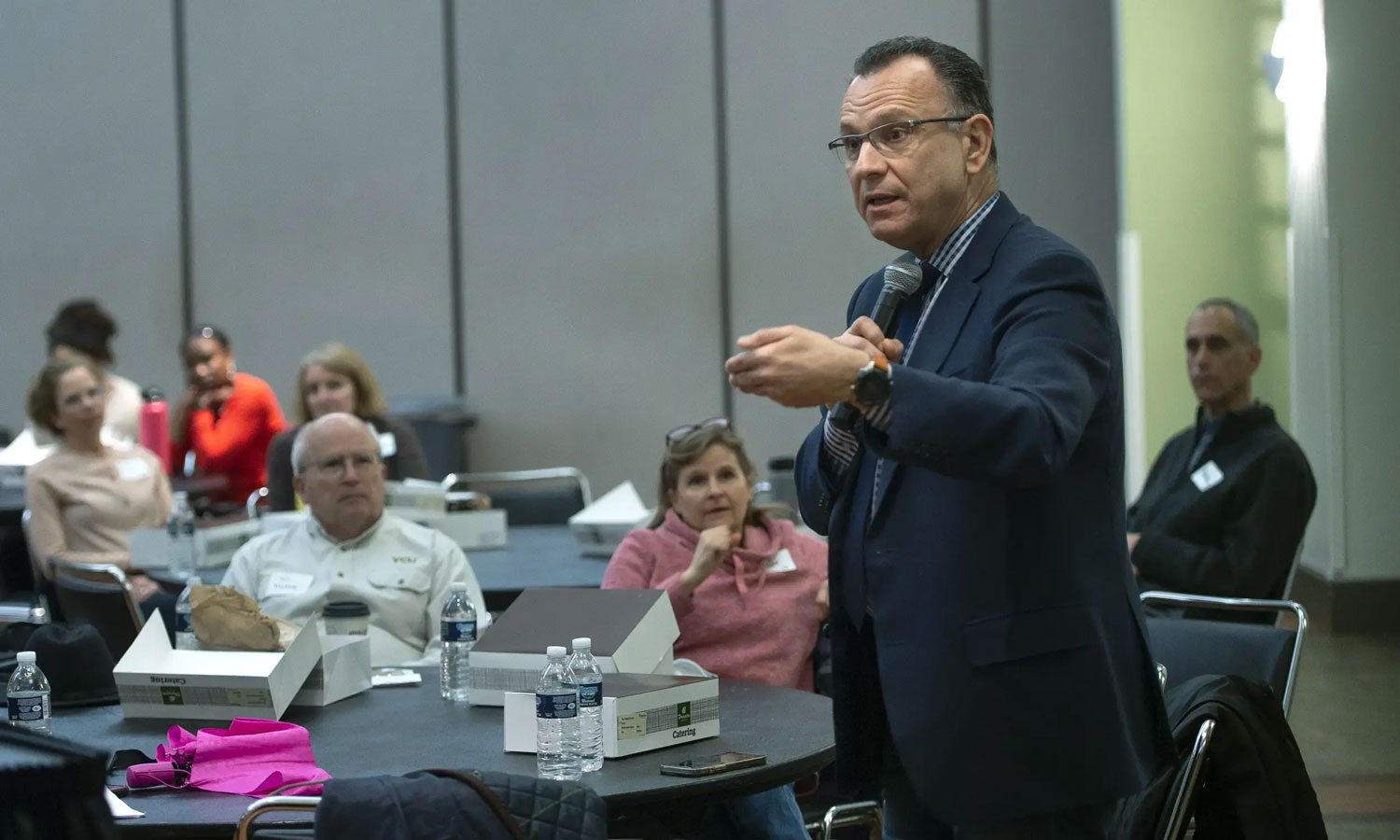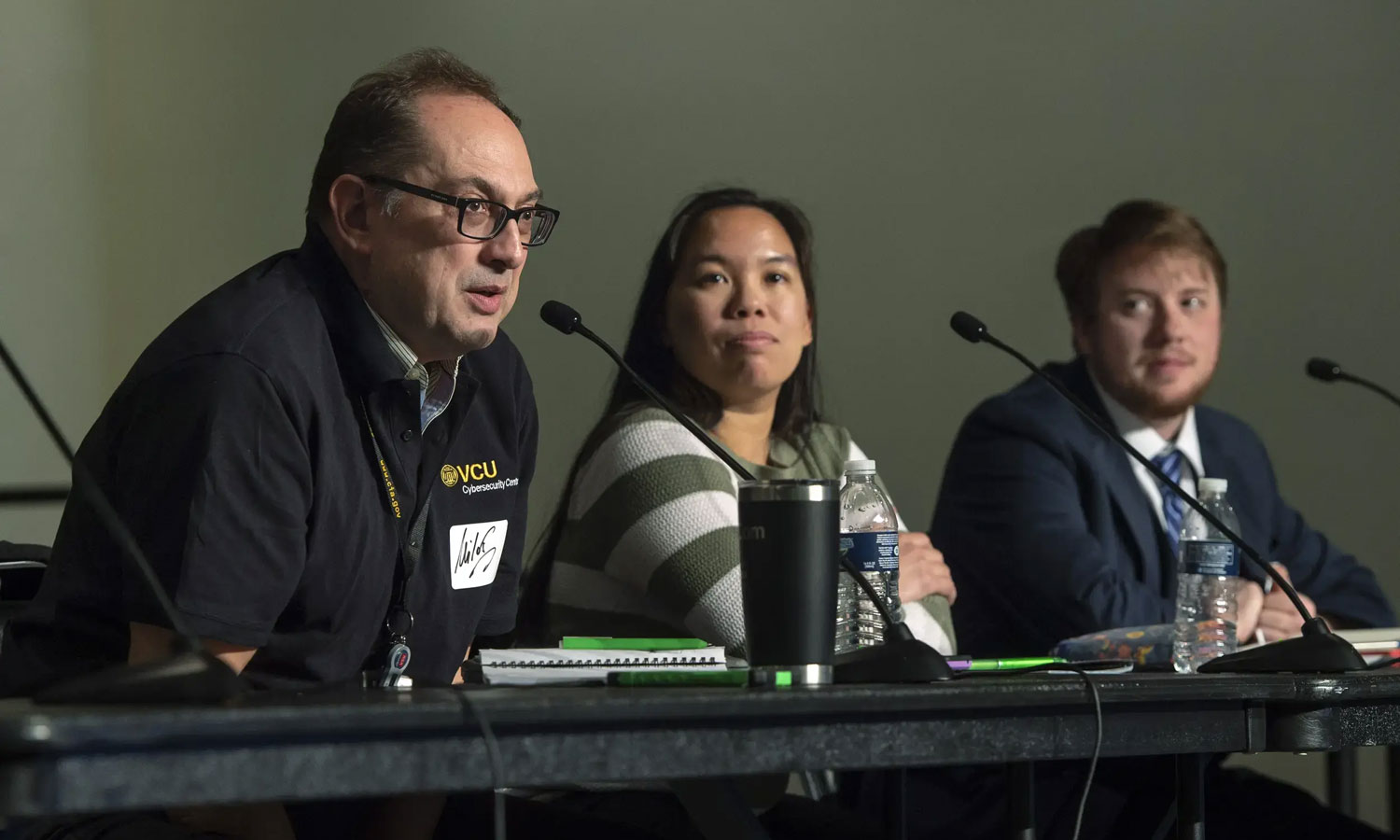By James Shea
Victoria Shivy, Ph.D., associate professor in the Department of Psychology at Virginia Commonwealth University, gave her students an assignment — log into the new artificial intelligence tool ChatGPT and experiment with the technology.
“I wanted to know what they think; what is their reaction?” Shivy said. “About a third of them were terrified and didn’t know what to do with this. They said, ‘It blew me away.’ Others were very pleased.”
ChatGPT is a program that produces text based on inputs from the user. Released in November, it can create anything from an email to a short article. People have used the technology to create recipes or research a geographical place. The text is based on enormous amounts of data collected from a variety of sources and uses computer code to assemble text in a legible manner.
The program has major potential implications in academia. On Tuesday, about 100 faculty and staff participated via Zoom and in-person in the University Student Commons at VCU for a panel discussion on “Artificial Intelligence in the Learning Environment” organized by the Office of the Provost. Tara Stamm, Ph.D., interim director of the Center for Teaching and Learning Excellence, part of faculty affairs in the Office of the Provost, moderated the conversation. Thea Pepperl, Ph.D., assistant professor in the Department of Biomedical Engineering in the College of Engineering; Milos Manic, Ph.D., professor of computer science in the College of Engineering and director of the VCU Cybersecurity Center; and Oscar Keyes, multimedia teaching and learning librarian, served as panelists.

The discussion focused on plagiarism, faculty grading, student assignments and how to discuss the technology in the classroom. The Office of the Provost is developing a resource guide on ChatGPT for instructors. That is expected to be released sometime this month, and it was clear that the conversation around AI on campus will continue to develop, and the resources guide will be updated as well.
“We need to have that discussion moving forward, and there needs to be as many voices as possible included in that discussion,” Pepperl said. “If there is no policy, there needs to be something like an active discussion board or an active faculty group that is giving us information. This is a tool. This shouldn’t be looked at with fear. This should be looked at with what can we do with it.”
The technology is not new. Computer scientists have been developing technology programs that produce text since the 1960s. ChatGPT is different. It no longer requires a computer program to access the technology, and the amount of information that the program utilizes is staggering.
Manic said ChatGPT is the beginning of artificial intelligence’s influence in the learning environment. The next generation of the technology will be even more powerful, and it is unclear how advanced the technology will become.
“We are actually a few inches away from the shore of a really deep ocean in terms of what AI is going to do,” Manic said. “I can’t think of another time in human history where humans encounter something that is so perplexing, exciting and scary.”
He suggested that faculty and staff open an account and experiment with the technology. For now, it is free to use. Educators need to understand the technology so they can begin to figure out where it fits into an academic setting.
“This is going to take us understanding how we prepare our students for the future of work and how we incorporate technology for student success,” Manic said. “It is going to change every aspect of the university.”
The panelists were unanimous that faculty should not ban the use of the technology in the classroom out of fear of student cheating. Students have access to the technology, and the technology to detect AI-generated content is not very sophisticated. They need to have an open discussion about the technology and where it fits into the classroom.
“I would say that if AI is coming up and related to essays one of the big things is having an open conversation with your students,” Keyes said. “You need to set the expectation. I would go so far as you could discuss what’s cool and what’s not cool and then hold them to it.”

Keyes said humans that use the technology will always be smarter than the technology by itself. Technology needs human creativity and context. AI will never have that. But how it fits into the learning environment is something that everyone is still trying to understand.
“AI versus human I don’t think is helpful,” Keyes said. “I really look at this as assistance technology.”
Fotis Sotiropoulos, Ph.D., VCU provost and senior vice president for academic affairs, said AI technology is being driven forward rapidly. Everyone in the room must join the conversation and help students and the community adapt to a new reality, Sotiropoulos said.
“Paraphrasing MIT’s Andrew McAffee, the impact of digital technologies on the power of the human brain is comparable to the impact the steam engine had on the power of human muscles during the industrial revolution,” he said. “We have to take that into account academically. We need to rethink what we teach, how we teach and how we learn. And, of course, we need to support faculty in navigating this pivotal and exciting step into the future.”
